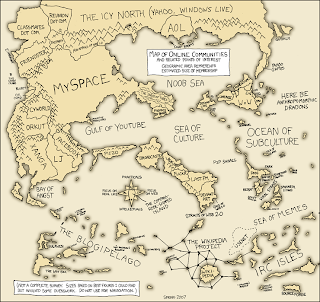
It is in the new niche driven market that we realize we no longer merely want to keep up with the joneses, have the same technology, gadgets and luxuries as them. We live in a world which more than ever before caters to us. We are driven by individuality and customization which is why in saying this; we don’t want to copy anyone not even the Joneses.
Our emergence into an individualised society has erupted through developments in the technological world. The internet now allows, as Chris Anderson points out in The Long Tail, people to now “wander further from the beaten path, [where] they discover their taste is not as mainstream as they thought (or as they had been led to believe by marketing, a lack of alternatives, and a hit-driven culture.)”(Anderson, 2006) People are finding now mores than ever, that perhaps they don’t like what they thought they did as much. For years we were force fed mainstream, yet as people, through the exploration of the world wide web, wonder further down the path less taken they are discovering ‘niche markets’ which exists and which are oh so much so better and more appealing to them than what they have ever had access to/seen before.
“Most of us want more than just hits. Everyone’s taste departs from the mainstream somewhere, and the more we explore alternatives, the more we’re drawn to them. Unfortunately, in recent decades such alternatives have been pushed to the fringes by pumped-up marketing vehicles built to order by industries that desperately need them.” (Anderson, 2005)
What it boils down to as Anderson enforces, is that our corny love story blockbuster and feigned pop are results of supply and demand. “Many of out assumptions about popular taste are actually artifacts of poor supply and demand matching- a market response to inefficient distribution.” (Anderson, 2005) When something sells well, it does not necessarily mean it’s a great product. The case most often is its abundance in supply and easy accessibility. The internet means we are no longer confined by the barriers of scarcity. We have access to abundance. Virtual shelf space has no limitations. Once bound by the space we had available, we today stand in an unfamiliar place where we are virtually, excuse the pun, limitless to what we have access to.
This shift to ‘niche’ does not mean mass will be eliminated in its entirely, there is still a need which requires mass such as low cost factors. The article Nouveau niche does make a great point however, in that “it will be mass by choice, not mass by scarcity.” (Trendwatching, 2005)

So it is through this technological rise that we now have access to a smorgasbord of products throughout the world. But it doesn’t end here. They also cater to ever every want and need. As I scour the web, checking my Myspace I realize I am surrounded by this notion of ‘niche’, >> click here to customize<< ‘pimp my profile’, flashes in the banner above my profile. We can now tailor just about anything to suit. Society now expect this individualization, with “every good, service and experience to address their unique and oh so important self.” (Trendwatching, 2005) Even products catered to the mass such as the Ipod, provide individualized components. You choose your color, style of Ipod and songs on it to suite you. Mass corporations are clicking onto this concept and now realize people don’t want to be like sheep. They want originality. They want things to suit them, things which are best for them. They don’t want to be products of the mainstream. They don’t want to copy the Joneses; no we want to be Joneses. Each one of us.

